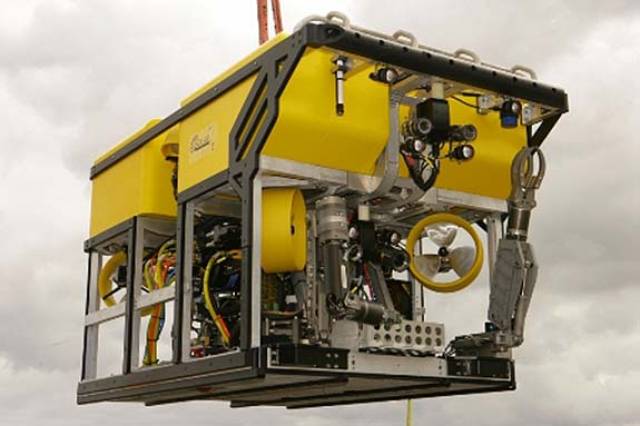The Marine Institute is working closely with the Coast Guard, the Air Accident Investigation Unit, Commissioners of Irish Lights, Geological Survey Ireland, P&O Maritime Services, the Navy, An Garda Síochána, and local skippers.
The Marine Institute's ROV Holland 1 remotely operated vehicle was deployed from the Commissioners of Irish Lights vessel, the ILV Granuaile. The ROV has high definition cameras, powerful lighting, robotic arms, and has been fitted with other specialist equipment to assist with the operation. It was fitted with a 'ROV homer' provided by the National Oceanographic Centre Southampton, capable of receiving signals from a black box. During a dive on Wednesday 22nd March, the ROV located rescue helicopter R116 on the sea bed on the Eastern side of Black Rock, at a depth of approx. 40m. The ROV acquired extensive video footage of R116 until poor weather conditions required the ROV to halt operations.
Experienced surveyors from the national seabed mapping programme, INFOMAR – a joint Marine Institute, Geological Survey initiative - continue to assist with the operation. The INFOMAR team identified target points for investigation and created 3D and 2D images of the seabed in the search area to help direct the ROV and assist with planning and safety of diver operations.
The Marine Institute will continue to cooperate with the Air Accident Investigation Unit, the Coast Guard, An Garda Síochána, and local persons and agencies to recover the missing crew members.































































